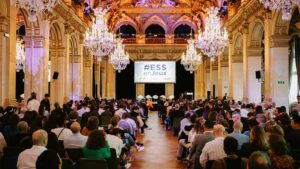
Hosting the Olympics is often labelled a white elephant, burdening cities with exorbitant costs and limited benefits in the long run. The 2004 Athens Olympics left Greece with a legacy of abandoned venues, contributing to the country’s economic woes. Beijing’s 2008 Games led to the displacement of thousands of residents and raised environmental concerns with extravagant construction projects.
Similarly, Sochi’s 2014 Winter Olympics resulted in massive overspending and infrastructure underutilisation, with many venues left vacant. Rio de Janeiro hosting the 2016 Olympics serves as a stark example. Despite massive investments, including infrastructure upgrades and new venues, the city struggled with post-Games legacy issues. Many venues crumbled and the promised urban renewal failed to materialise. The Maracanã Stadium, once a symbol of sporting glory, became a symbol of neglect.
However, Paris 2024 aims at social and economic prosperity through engaging local small businesses. The Paris 2024 committee embraced the concept of the Social and Solidarity Economy (ESS), engaging 460 local businesses committed to balancing economic, social, and environmental goals. Collaborating with the Yunus Centre for Social Business and Les Canaux, the organising committee launched the ESS 2024 program, providing access to Olympic and Paralympic contracts and offering training and resources. With 2.6 million hours of work or training provided to previously unemployed individuals, the programme aims to address poverty, unemployment, and carbon emissions.
Professor Muhammad Yunus, Nobel Peace Prize Laureate, commended Paris 2024’s efforts, emphasising the significance of utilising the Games to tackle societal challenges. At a recent event hosted by Mayor Anne Hidalgo, supported by Yann Arthus Bertrand’s photo exhibition, the diverse faces behind the ESS 2024 project were showcased. “The Olympic and Paralympic Games are a magnificent international sporting event, but one that is even more meaningful if it helps find solutions for a world with 3 zeros: 0 poverty, 0 unemployment, 0 net carbon emissions,” said Professor Yunus. [Olympics.com]
For the Latest Sports News: Click Here
Notable contributions include social businesses securing contracts for cleaning and laundry services for the Olympic Village, sustainable chairs produced for venues, and initiatives like Halage reintegrating nature into the city and H.A.W.A AU FÉMININ empowering women through fashion-related training.
Paris 2024’s commitment to socially, environmentally, and economically responsible Games, outlined in the Social Charter, sets a precedent. By prioritising exemplary working conditions, social inclusion, and support for small- and medium-sized businesses, the Games are expected to employ over 181,000 people, with a significant percentage of suppliers being French SMEs.
The Yann-Arthus Bertrand photo exhibition will continue to showcase Paris 2024’s legacy and impact, reinforcing the Games’ commitment to sustainability and community engagement.
Paris 2024’s commitment to social, environmental, and economic sustainability is evident through the ESS 2024 program. By engaging 460 local businesses and promoting initiatives like sustainable materials production and nature reintegration projects, the Games set a precedent for responsible event planning. The Paris 2024 Social Charter underscores their dedication to inclusive practices. As the Yann-Arthus Bertrand exhibition tours Paris, it symbolises the Games’ enduring legacy of community engagement and positive change.
Also Read: Quinton de Kock Exclusive: South African cricketers should see a witch doctor before ICC World Cups